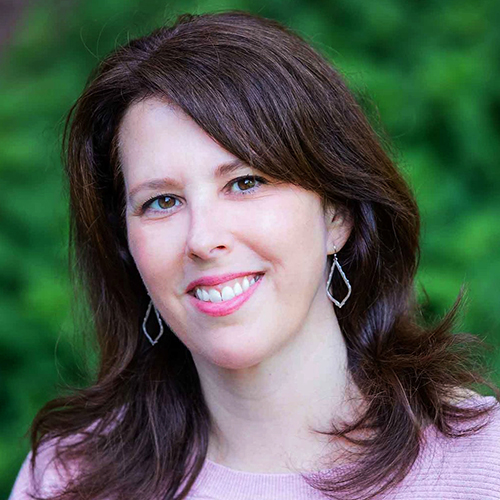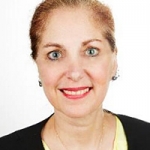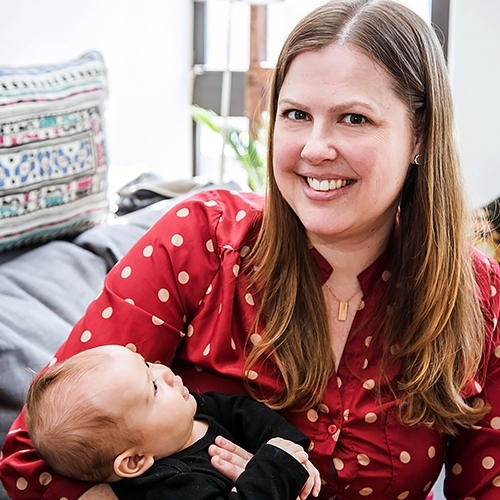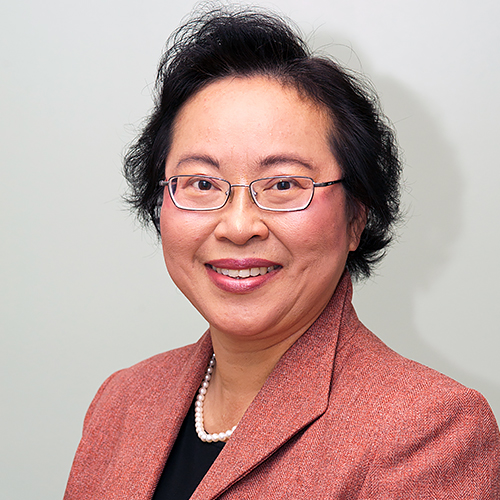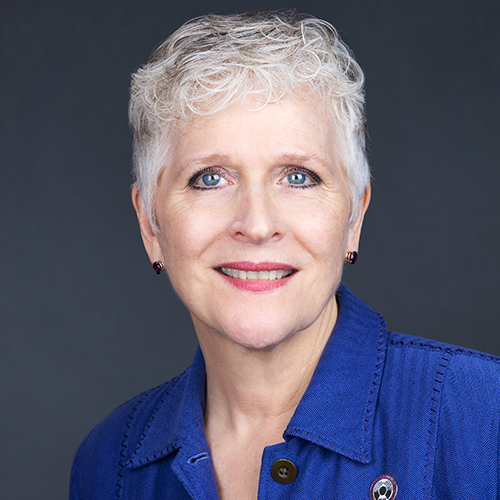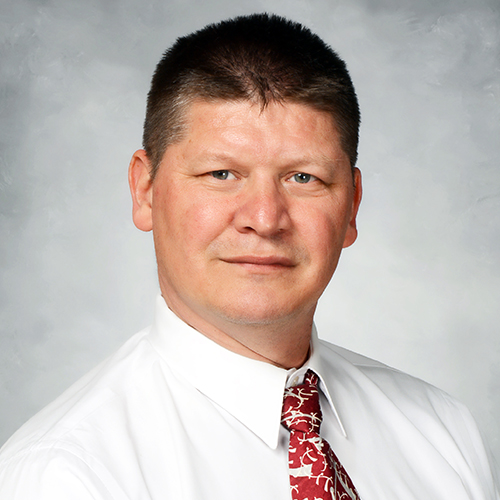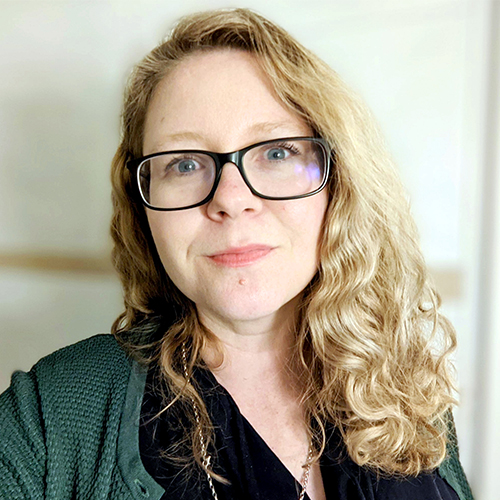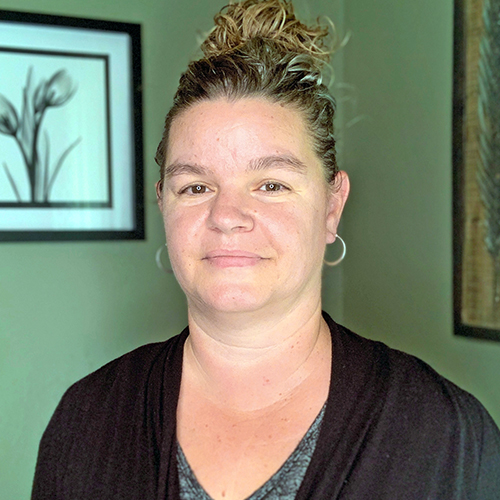 IBCLC Detailed Content Outline: Clinical Skills / Ethical and Legal Issues Focused CERPs - Section VII C
IBCLC Detailed Content Outline: Clinical Skills / Ethical and Legal Issues Focused CERPs - Section VII C
Access CERPs on Clinical Skills / Ethical and Legal Issues for the IBCLC Detailed Content Outline recertification requirements. On-demand viewing of the latest Clinical Skills / Ethical and Legal Issues focused IBCLC CERPs at your own pace.
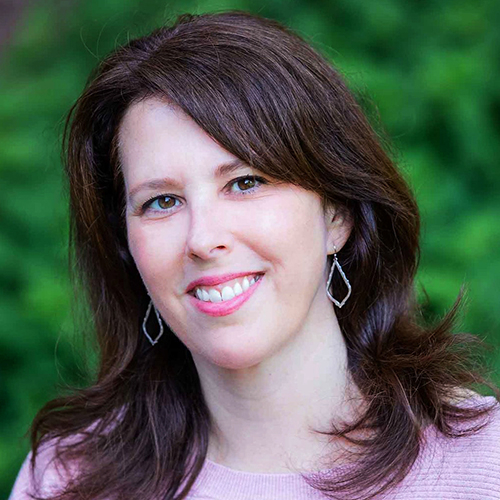
Nurturing the Future of Lactation Care: It’s up to All of Us!

Allison Walsh IBCLC LCCE FACCE is an International Board Certified Lactation Consultant (2006), Lamaze Certified Childbirth Educator (2000), and and doula (2000) in private practice in New York City. She is one of the three founders of the Lactation Learning Collective, which offers education and support to those on the pathway toward certification as International Board Certified Lactation Consultants along with families in need of lactation support. She trains childbirth educators as a Co-Director of the NYC Lamaze Childbirth Educator Program and is a past president of Lamaze. Allison has represented Lamaze International as a delegate to the United States Breastfeeding Committee since 2004, and has served in various leadership and committee roles. Allison is a member of the New York City Breastfeeding Leadership Council, the New York Lactation Consultant Association, and an active La Leche League Leader. She co-chaired the Save the Birthing Center Committee which was a group of professionals, advocates and consumers who fought valiantly but unsuccessfully to stop the closure of the Mount Sinai West (formerly Roosevelt) Birthing Center in New York City. Prior to the birth of her first child, Allison was a political consultant and community organizer. Skills from that “past life” are useful in all aspects of her work in the birth world. She is a graduate of Syracuse University and mother of three formerly breastfed children. Allison thinks that babies are the most interesting of all people and never underestimates the power of a good cup of tea, fresh air, and fresh bed linen.
The possibility of serving as a mentor can feel perfectly comfortable to some people, while overwhelming and frightening to others. This presentation will discuss the steps to becoming a mentor and fostering a productive mentoring relationship to grow the lactation care profession. Join one of the founders of NYC's Lactation Learning Collective for an in-depth look at the why’s and how’s of mentoring the next generation. Learn about IBLCE’s requirements and how to smooth the process and make it fulfilling for both mentees and mentors.
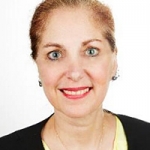

Jake Marcus, J.D., is the nation’s foremost expert on breastfeeding law. Formerly Staff Attorney at a non-profit assisting survivors of domestic violence, her current private practice focuses on small businesses (including the business issues of health care practitioners such as IBCLCs and midwives) and healthcare. She was Politics Editor at Mothering magazine until it ceased publication in April of 2011. She was a member of the Legal Advisory Council to La Leche League International. She created and maintains BreastfeedingLaw.com.
Breastfeeding women find themselves in need of assistance in a wide variety of legal contexts. This session reviews the options available to lactating women in custody disputes, as criminal defendants, as witnesses, when called for jury duty, and as immigration detainees.

View Details / Enroll
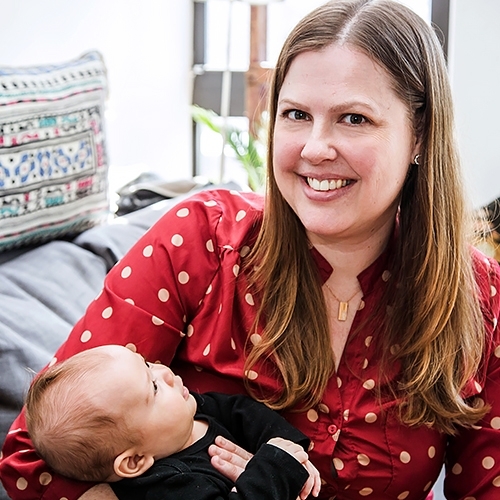

Annie Frisbie has been an IBCLC in private practice since 2011. Her background is in media, where she worked very closely with producers, content developers, and tech thought leaders on business strategy, content development, contracts, legal clearances, and more. She has also produced training for professional media software solutions as well as created and managed print and video content for media professionals.
In 2018 she was honored with the US Lactation Consultant Association's President's Award, "awarding those that demonstrate extraordinary service to the association and profession."
She is a produced screenwriter and proud member of the Writers Guild of America, East. She have a BA from Franklin and Marshall College, and an MA in Cinema Studies from New York University. In a previous life I was a film critic. I live with my husband and our two children in Queens, New York.
Topic: The Ethics of Digital Privacy and Lactation Practice - [View Abstract]
As healthcare providers incorporate technological solutions into their practices, they also face the increasingly complex task of protecting the privacy of their patients/clients. Some countries have laws in place that healthcare providers need to understand and follow, but all healthcare providers regardless of practice setting have an ethical responsibility to maintain rigorous standards when it comes to digital privacy.
Because technology changes so rapidly, keeping up-to-date with privacy regulations proves challenging for both large institutions and solo practitioners. Lactation must also be concerned with the privacy of more than one entity while serving a patient base that may have already faced numerous privacy and consent violations during pregnancy and childbirth. By valuing the privacy of lactating persons and their children, legal, ethical, and moral obligations can be met, enhancing client/patient autonomy and improving self-efficacy.
This session provides a framework for understanding digital privacy and privacy threats, and offers resources for implementing policies and procedures that protect patient/client privacy.

View Details / Enroll
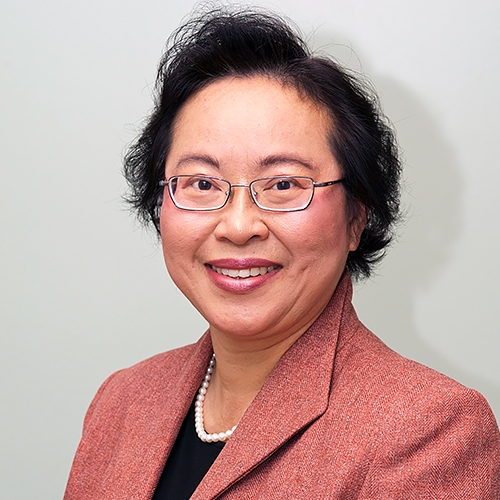

Wilai Rojjanasrirat, PhD, RN, IBCLC, FILCA, FAAN is a Professor and Director of Research and Scholarship at Graceland University’s School of Nursing in Independence, Missouri. Her background is in midwifery and maternal and child health nursing.
She is an international board certified lactation consultant. She earned her Bachelor’s in Nursing and Midwifery from Thailand and Master’s and Doctorate and Post-Doctorate in Nursing from the University of Kansas. She teaches in graduate nursing program. Her research focuses on promoting and supporting breastfeeding, psychometric development, and educational outcome evaluation.
Using telehealth in providing lactation support, evaluation of the breastfeeding outcomes among late-preterm, near term, and term infants, and evaluation of the Business Case for Breastfeeding Program’s impact among employed breastfeeding mothers in Kansas are among some of the research projects.
Dr. Rojjanasrirat has multiple publications and recently contributed to a book chapter on Employment and Breastfeeding in Wambach & Spencer, Breastfeeding and Human Lactation, 6th edition in 2021. She served as a former president of the Pi Eta Chapter of the Nursing Honor Society, a board member of the KC Board of Directors of Kansas City, Kansas, and a former president of the Greater Kansas City Lactation Consultant Association for several years.
Topic: Understanding Lactation-Related Research - [View Abstract]
Evidence-based practice directly influences and drives day-to-day clinical practice in the current healthcare environments. Lactation consultants need to keep up to date with research evidence for best practice. Although the primary goal of lactation providers is to provide optimal lactation care to breastfeeding mothers, it is necessary to know how to apply appropriate evidence to use on a regular basis by understanding research process and how to read research articles. The purposes of this presentation are to present basic concepts related to conducting and understanding lactation related research including quantitative and qualitative research methods. In addition, the presentation also will cover the guides to reading scientific research articles. The participants do not require extensive or advanced medical or research methodological knowledge to attend this workshop. Some breastfeeding research papers including case studies, clinical trials, and qualitative research will be used as examples.

View Details / Enroll

Using a Cool Head When You’re on the Hot Seat: Ethical and Legal Topics That Make Us Sweat, and How to Avoid Getting Burned

Liz Brooks is a private practice International Board Certified Lactation Consultant (IBCLC) and licensed lawyer, with expertise in criminal, administrative, non-profit, ethics, and lactation-related law. Liz offers in-home lactation consultations, and bedside care and teaching in two Baby-Friendly-designated hospitals.
She has been a leader in organizations for IBCLCs, breastfeeding promotion, and non-profit human milk banking. She authored the only textbook on legal and ethical issues for the IBCLC, and writes on health care ethics, equity, and conflict-of-interest in several books, blogs, and peer-reviewed journals.
She is a popular international conference speaker, offering practical tips with wit and wisdom for anyone who works with lactating and human milk-using families. Liz self-identifies as a cisgender hetero white woman with unearned privilege, and uses she/her/hers pronouns.
Topic: Using a Cool Head When You’re on the Hot Seat: Ethical and Legal Topics That Make Us Sweat, and How to Avoid Getting Burned - [View Abstract]
Topic: What’s Too “Friendly” for an IBCLC on Social Media? - [View Abstract]
Topic: Whiners and Deniers: Ethics and Diplomacy in Difficult Cases - [View Abstract]
We all understand, generally, that lactation support providers – from licensed primary healthcare providers (HCP) to volunteer peer counselors – owe a “duty of care” to the parents they work with, defined by laws and ethics codes. But many are concerned that they do not know what is really expected of them, in the moment of clinical care, when decisions about how to do things “the right way” must be made. This session will cover the basic of ethics and legal duty as a lactation support provider. Examples from the International Board Certified Lactation Consultant (IBCLC) literature will be used. A few topics that are the most common "hot spots" for practitioners (the ones that make us sweat) will be explored with a few slides, and a lot of free-flow Q&A with session attendees, as we ponder realistic tactics to protect ourselves as practitioners with cool heads and clinical excellence.

View Details / Enroll
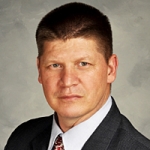

Tom Johnston is unique as a midwife and lactation consultant and the father of eight breastfed children. Recently retired after 27 years in the US Army, he is now an Assistant Professor of Nursing at Methodist University where he teaches, among other things, Maternal-Child Nursing and Nutrition. You may have heard him at a number of conferences at the national level, to include the Association of Woman’s Health and Neonatal Nurses (AWHONN), the International Lactation Consultant’s Association (ILCA), or perhaps at dozens of other conferences across the country. In his written work he routinely addresses fatherhood and the role of the father in the breastfeeding relationship and has authored a chapter on the role of the father in breastfeeding for “Breastfeeding in Combat Boots: A survival guide to breastfeeding in the military”.
Topic: Human Milk Synthesis: Just When You Thought You Knew - [View Abstract]
Topic: New Insights Into the Maternal Child Microbiome - [View Abstract]
Topic: Promoting Provider Self-Efficacy in Breastfeeding Support - [View Abstract]
Topic: Still Swimming Upstream: Breastfeeding in a Formula Feeding World - [View Abstract]
Topic: The Making of Human Milk: A Clinical Update - [View Abstract]
Topic: The Maternal-Child Microbiome or: The “Oro-boobular axis” - [View Abstract]
Topic: The Maternal-Child Microbiome or: The “Oro-boobular axis” - [View Abstract]
Topic: The Perinatal Microbiome - [View Abstract]
Topic: Using Evidence to Develop Clinical Lactation Skills - [View Abstract]
The field of Human Lactation is a new profession. Much of what we use comes from apprenticeship programs and hard learned lessons from a mother’s own personal experience. The lactation profession needs to investigate several of their practices and policies to discover what is evidence based and what is anecdotal evidence. This presentation explores the practices commonly employed in breastfeeding (growth monitoring, infant positioning, the use of assisted feeding devices, and counseling skills) to determine which are evidence based and which will require further study if they are to be used in clinical practice.

View Details / Enroll
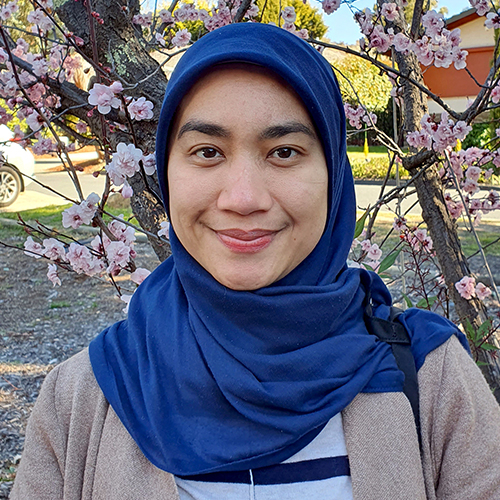
What’s New With Ten Steps to Successful Breastfeeding: Updates and Its Cost/Benefit Implications

Andini has bachelor and master degree in public health, majoring in hospital administration. She is an IBCLC and is currently undertaking PhD at the Australian National University. Her PhD thesis is looking at the facilitator and barrier of Baby Friendly Hospital Initiative implementation and accreditation in Indonesia and Australia. One part of her PhD was measuring its social value using Social Return on Investment.
Her journey began when she was pregnant with her first child, then found and attended full series of Indonesian Breastfeeding Mothers Association (AIMI)'s breastfeeding classes. She then decided to volunteered as breastfeeding counselor at AIMI.
With her work experience in hospital management consulting for 8 years and personal experience when her breastfed son undertook open heart surgery, she realized that not every hospitals provide adequate education and support for breastfeeding mother, either since pregnancy, during and after birth.
Andini was awarded Deeble Summer Research Scholarship from Deeble Institute for Health Policy Research Scholarship Program of Australian Healthcare and Hospitals Association (AHHA) in 2020 and published a Health Policy Issues Brief titled "Improving the Uptake of the Baby Friendly Health Initiative in Australian Hospitals" as the outcome. Thanks to her supervisor, Andini involved in working group for Breastfeeding Friendly Workplace Accreditation at ANU in 2018-2019 and involve in WBTi Australia since 2019. Currently living in Canberra Australia, Andini has been providing breastfeeding education and assistance for Indonesian mother-student, students' wives or any Indonesian women who live in Canberra.
In 2018, the World Health Organization (WHO) issued the first revision of the 1989 WHO/UNICEF Ten Steps to Successful Breastfeeding. Revisions are subtle, yet meaningful for implementation. A major change made by WHO is subdividing the Ten Steps into 1) critical management procedures, and 2) key clinical practices. Lessons have been learned on how the change has shifted the focus from health care staff to parents and families and shifted the responsibility for some elements of care from hospitals to the community. In this presentation, we will compare 1989 and 2018 Ten Steps, and explore its cost and benefit implications for diverse stakeholders, such as healthcare professionals, parents, family and government.
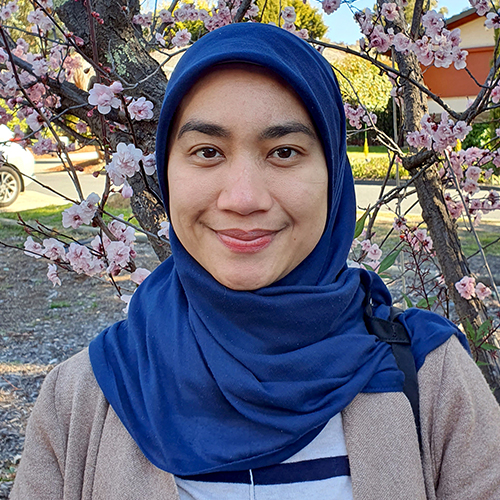
View Details / Enroll
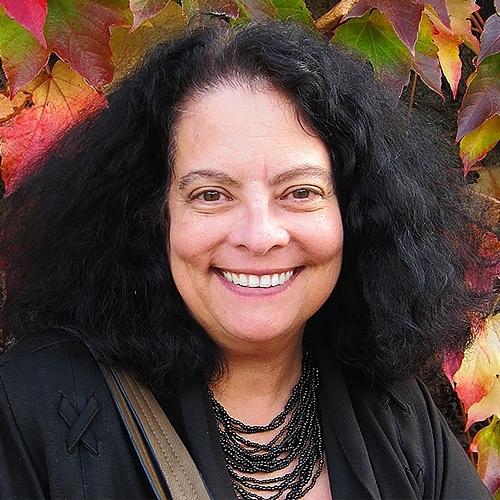
What’s New With the International Code on the Marketing of Breast Milk Substitutes: It’s Not Just About Formula!

A Canadian living in France for more than 25 years, Juanita discovered breastfeeding with her three children and has never looked back.
She became a La Leche League Leader in 1997, and served on the boards of LLL France 2004-2008 and LLL Europe 2011-2018. She has been the regional representative of LLL Europe to WABA since 2007. Juanita became a lactation consultant in 2003 (IBCLC), recertifying in 2008 and 2013.
Juanita was the coordinator for the Journée Internationale de l’Allaitement (‘JIA’ – International Breastfeeding Conference for health professionals organized by LLL France) in 2003 and 2008. She helped create and implement the Peer Counsellor Programme in France (Programme relais allaitement- Prall).
The WHO Code is one of her passions! She has spoken on the Code at conferences around the world. Member of the Coordination française pour l’allaitement maternel (CoFam) since 2007, she was head of the Task Force on the Code and ethical questions. As a member of IBFAN *and GIFA, she was given the opportunity to participate in international meetings of the Codex Alimentarius and the OECD in Paris, as well as in week-long IBFAN conferences in Montecatini, Italy in 2007, and in Geneva in 2008. She also attended the Committee on the Convention on Rights of the Child in Geneva for IBFAN and helped prepare a country report on France underlining the importance of breastfeeding and the need to apply the Code (2009). She is an active member of IBFAN’s Global Working Group on Contaminants in Breastmilk. In 2018, she represented LLLI at the second NetCode meeting in Geneva.
The International Code on the Marketing of breast milk substitutes is the very cornerstone of breastfeeding protection, promotion and support, and an integral part of infant and young feeding policies around the world; yet it is often misunderstood or considered to be an out of date document with little relevance to breastfeeding issues today. Nothing could be further from the truth. The Code is updated regularly with additional resolutions voted at World Health Assemblies every two years, and covers far more than the marketing of breast milk substitutes in the first six months of life, but promotes optimal nutrition practices up to 36 months, and addresses conflict of interest with infant food companies. Indeed, the rapidly growing global market of breast milk substitutes, estimated at more than $70 billion in 2019, continues to undermine breastfeeding through its evermore aggressive and omnipresent marketing techniques, focused on parents, health professionals and health systems. The stakes are high – understanding and implementing the Code is an essential step towards ensuring optimal nutrition for infants and young children, whether breastfed or formula-fed.

View Details / Enroll
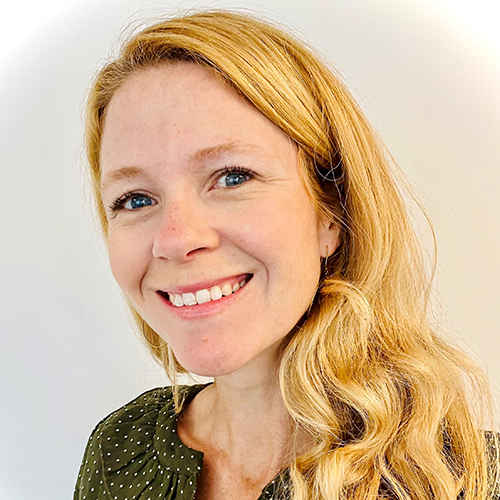
When Evidence and Empathy Aren't Enough: Changing Your Lactation Practice to Boost Client Success

Johanna Sargeant is an International Board Certified Lactation Consultant, teacher and writer based in Zurich, Switzerland. She is passionate about utilising her background in education, biological science, psychology and language to empower parents with empathetic support and evidence-based information through her private practice, Milk and Motherhood.
Originally from Australia, Johanna provides much-needed English-speaking support to many thousands of parents throughout Switzerland and across Europe, and has recently been writing new education modules for the European Society of Paediatric Research and the European Society of Neonatology. She has taught at the University of Zurich, has spoken as a panelist for the WHO's Baby Friendly Hospital Initiative congress in Geneva, has been an expert speaker and facilitator for Google, and has presented at a wide variety of international conferences. The complexities of her personal feeding experiences fuels her passion for providing knowledgeable, guilt-free infant feeding support globally.
Topic: Mastering Lactation Conversations: Creating Successful and Achievable Care Plans - [View Abstract]
Topic: Seeing the Bigger Picture: Finding Clues in Our Breastfeeding Clients' Surroundings - [View Abstract]
Topic: When Evidence and Empathy Aren't Enough: Changing Your Lactation Practice to Boost Client Success - [View Abstract]
Lactation professionals often accompany clients through the process of making difficult decisions: The client who wants to exclusively breast/chestfeed but loves that their partner gives infant formula each evening; The client who wants to and doesn’t want to stop pumping simultaneously; The parents who feel unsure about a potential frenotomy procedure; The client with breastfeeding aversion, desperately struggling with their 18 month old. Lactation professionals aim to provide empathetic care and to give the evidence needed to make informed decisions, and yet there are times where this is not enough and where clients continue to struggle to choose what works best for them. Here, learners will explore some Motivational Interviewing strategies that will actively empower clients, resulting in a significant shift in lactation practice overall. Discover how the strong desire to inform, advise and fix client problems can significantly reduce positive outcomes, and how a focus on the client’s own ‘change talk’ and ‘sustain talk’ can actively mobilize them towards their goal. Learn specific tools to immediately apply in consultations so parents feel deeply supported, feel motivated towards change, feel ownership of their plan, and to ultimately increase the likelihood of their success.
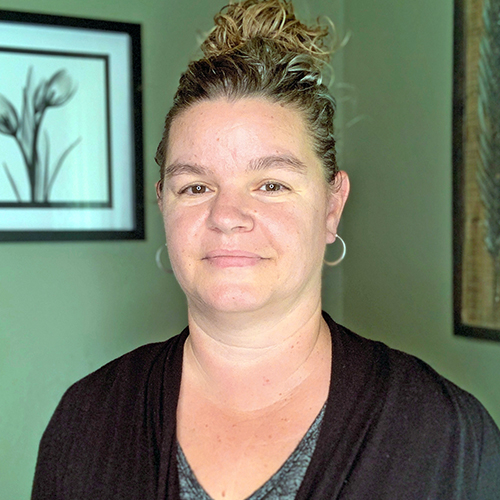
Your Responsibility to the WHO Code: Evaluating Real-World Scenarios for Compliance

Christine Staricka is a Registered, International Board-Certified Lactation Consultant and trained childbirth educator. As the host of The Lactation Training Lab Podcast, her current role focuses on training and coaching current and aspiring lactation care providers. Christine created and developed The First 100 Hours© concept, an early lactation framework designed to support lactation care providers with the knowledge and mindset they need to help families optimize early lactation. Christine worked as a hospital-based IBCLC for 10 years and has over 20 years experience providing clinical lactation care and support. She provides clinical lactation care to families at Baby Café Bakersfield and serves as its Director. Christine recently completed 6 years of service on the Board of the United States Lactation Consultant Association (USLCA.) She holds a Bachelor's Degree from the University of Phoenix. She has been married for 27 years, lives in California, and is the proud mother of 3 amazing daughters.
Topic: Tongue-Tied and Troubled: A Breastfeeding Journey at Risk - [View Abstract]
Topic: Your Responsibility to the WHO Code: Evaluating Real-World Scenarios for Compliance - [View Abstract]
The International Code of Marketing of Breastmilk Substitutes (WHO Code) exists to protect health during a vulnerable period of life. In the course of practicing health care in the service of families with babies and young children, health care workers of all disciplines will encounter situations which should be guided by the WHO Code. It is in the interest of families and health for all health workers to be aware of the WHO Code and what it requires, as well as to be able to evaluate a situation where a commercial entity is interacting with the public regarding infant and young child feeding. Using a rubric of WHO Code guidance, the participant will practice evaluating real-world case studies and determining whether or not they are in compliance with the WHO Code.



